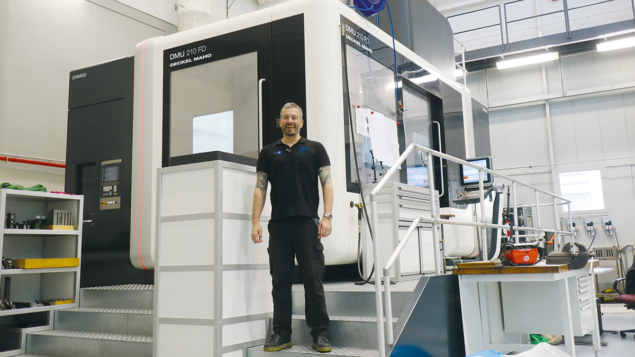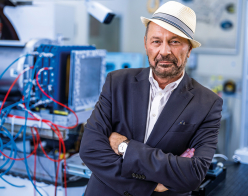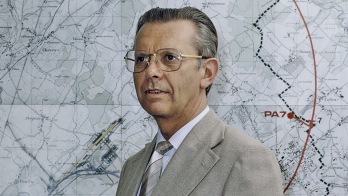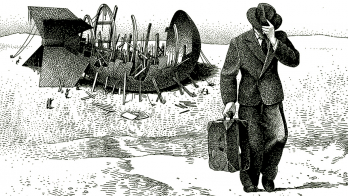Exploring the fundamental laws of the universe relies on the dedication of skilled CERN technicians. Bryan Pérez Tapia talks to heavy-machinist Florian Hofmann.

State-of-the-art particle accelerators and detectors cannot be bought off the shelf. They come to life in workshops staffed by teams of highly skilled engineers and technicians – such as heavy-machinist Florian Hofmann from Austria, who joined CERN in October 2019.
Florian is one of several hundred engineers and technicians employed by CERN to develop, build and test equipment, and keep it in good working order. He works in the machining and maintenance workshop of the mechanical and materials engineering (MME) group, which acts as a partner to many projects and experiments at CERN. “We tightly collaborate with all CERN colleagues and we offer our production facility and knowledge to meet their needs,” he explains. “Sometimes the engineers, the project leaders or even the scientists come to see how the parts of their work come together. It is a nice and humbling experience for me because I know they have been conceiving components for a very long time. Our doors are open and you don’t need special permission – everyone can come round!”
Before joining CERN, Florian began studying atmospheric physics at the University of Innsbruck. After two semesters, he realised that even though he liked science he preferred not to practise it, so decided to change to engineering and programming. After completing his studies and working in diverse fields such as automotive, tool making and water power plants, he joined CERN. Like many of his colleagues, his expertise and genuine curiosity for his work helps Florian to find tailor-made solutions for CERN’s challenging projects, every one of which is different, he explains. “Years ago the job used to be a traditional mechanics job, but today the cutting-edge technologies involved make this the Formula One of production.”
Heavy metal
Florian is currently working on aluminium joints for the vacuum tank of the kicker magnets for the Proton Synchrotron, a fundamental component on which the technicians collaborate with many other groups. The workshop is also contributing to numerous important projects such as the FRESCA2 cryostat, which is visible at the entry of the workshop, and the crab cavities for the High-Luminosity LHC upgrade. The radio-frequency quadrupole for Linac4, which now drives all proton production at CERN, was built here, as was the cryostat for the ICARUS neutrino detector now taking data at Fermilab and parts of the AMS-02 detector operating on the International Space Station. In the 1960s, the workshop was responsible for the construction of the Big European Bubble Chamber, now an exhibit in the CERN Microcosm.
Today, the cutting-edge technologies involved make this the Formula One of production
Before any heavy-machinery work begins, the machining team simulates the machining process to avoid failures or technical issues during fabrication. Although the software is highly reliable, Florian and his co-workers have to stand by to control and steer the machine, modifying commands when needed and ensuring that the activity is carried out as required. Every machine has one person in charge, the so-called technical referent, but the team receives basic training on multiple machines to allow them to jump onto a different one if necessary. The job stands out for its dynamism, Florian explains. “At the MME workshop, we perform many diverse manufacturing processes needed for accelerator technologies, not only milling and turning of the machine but also welding of exotic materials, among others. The possibilities are countless.”
Florian’s enthusiasm reflects the mindset of the MME workshop team, where everyone is aware of their contributions to the broader science goals of CERN. “This is a team sport. When you join a club you need it to have good management, and I think that here, because of our supervisors and our group responsibility, you are made to feel like everyone is pushing in the same direction.” Being curious, eager to learn and open-minded are important skills for CERN technicians, he adds.
“When you come to CERN you always leave with more than you can bring, because the experience of contributing to science, to bring nations together towards a better world, is really rewarding. I think everybody needs to ask themselves what they want and what kind of world they want to live in.”








